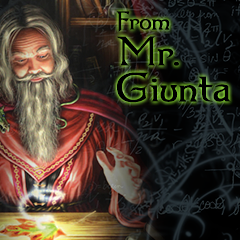I’m actually ahead of schedule for my serial, so I thought I’d write a blog post. I’m a fan of tabletop role-playing games like Advanced Dungeons & Dragons and Savage Worlds, so it shouldn’t be a surprise that I tend to write my own campaigns. One of the hallmarks of a good Dungeon / Game Master and player is the ability to role-play a character. It’s not always necessary to put yourself completely into the character’s shoes, but it does lend quite a bit to the fun of playing.
Separating the person from the character is important to making decisions. Sure, I’d love some more experience points to level up and some shiny new magic gear, but would my character really attack this merchant? We’re in his store, after all. If he’s selling magic items, he probably has security measures. Not to mention, the city guards. Is it worth the blood on my hands, the bad reputation and possible jail time or death? Crushnuts the barbarian might think so, but Sir Healsalot the cleric… not so much.
The same goes for the DM. Every non-player character I throw at the group is a person with an agenda. Those motives could be as simple as self-preservation to the complex machinations of a true villain bent on the destruction of mankind – or dwarfkind, elfkind… depends on the campaign. Not only does a good DM need to know his NPC’s motives, beliefs and habits, but s/he needs to utilize them while interacting with the group. Playing an RPG is in essence acting out a story. Playing up the individual characters gives credibility and satisfaction to it.
When players are able to investigate the motives of an adversary, learn the why of what they’re doing, they can plan and act accordingly. Intelligent resolution to any problem is rewarded just as much as brute force – at least it is in my campaigns. Sure, it’s fun to kill monsters, but after a while it’s not as a satisfying as solving a puzzle or coming to the realization the Big Bad is just trying to save his daughter. Not everyone is out to hoard power or destroy the world. No character sets out to be the villain. Conflicting point of views and beliefs are what drives a realistic antagonist.
Knowing all this, being able to act on the information while interacting with other people, is what allows a writer to put him or herself into their character’s shoes. Treat every character like the hero of their own story. Sure, they’re only playing a cameo in this one, but they don’t know that! It’s difficult to write in such a way that gives every character in any given scene equal consideration, but it’s what makes for good story telling.
Playing AD&D won’t make you a better writer, but it will make you a better story teller.

